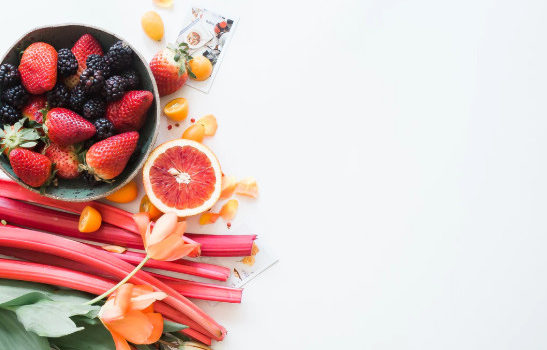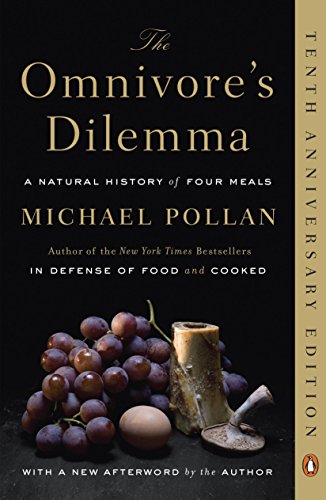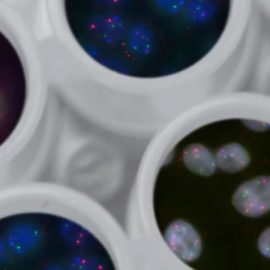

This article is an excerpt from the Shortform summary of "The Omnivore's Dilemma" by Michael Pollan. Shortform has the world's best summaries of books you should be reading.
Like this article? Sign up for a free trial here .
What are the benefits or organic farming and organic food? What do you get from them that you can’t get with normal food? Learn the surprising benefits of organic farming to farmers, the environment, and eaters.
Benefits of Organic Farming for Farmers & Eaters
In terms of marketing, the main differences between local and industrial food are price and availability of information on quality.
With on-farm organic food sales, the farmer, rather than middlemen, receives most of the consumer’s dollar. Local organic food is honestly priced (its price reflects the true cost of production), meaning it costs more but you’re not paying additionally for pollution and health costs, or through a government subsidy.
The only information available on industrialized products is price, although there’s a barcode, which isn’t understandable to consumers. The USDA message is that all meat inspected by the government is of the same quality (which isn’t true).
While industrial food is sold on the basis of price, buyers of local organic food can discuss quality and get information directly from the farmer. This is one benefit of organic farming. With more information people might make different decisions on what they buy.
Small producers focus on exceptional quality and keeping expenses down. For instance, they save money by using word of mouth and reputation rather than advertising. They educate customers about seasonality: For example, eggs are better in summer, when chickens have a natural diet, than winter.
As consumers we can still decide what to eat and what sort of food chain to participate in. Supporting a local food chain supports a pastoral environment and values, but this type of shopping requires more effort than shopping at a supermarket or Whole Foods. Preparing fresh food requires more time and effort as well.
A local food economy requires not only a different kind of producer, but also a different kind of customer, who is willing to give up convenience and spend time on shopping and preparation to get better quality food.
The Benefits of Organic Food
Pollan’s meal based on a local food chain consisted of two chickens from Polyface Farm, plus eggs and sweet corn from the farm.
- Also, locally grown salad
- Local wine
- Chocolate (not local) to be used with eggs to make a soufflé
The chickens were slow roasted over a wood fire (apple twigs) and brined. Although the meal was a common one, the grass-fed version tasted better than typical supermarket ingredients, and had greater nutritional value.
Research has shown that pastures produce more nutritional chickens, eggs, beef, and milk. Meat from pasture-raised animals contains more beta-carotene, vitamin E, and folic acid from grass, and higher levels of Omega-3. Also, it has less saturated fat, and more unsaturated fat, which is better for us.
There are better ratios of Omega-3s to Omega-6s. Omega-3 helps blood to clot, while Omega-6 helps blood flow; Omega-3 is an anti-inflammatory, while Omega-6 is inflammatory. Having the right balance is important to health. The changes in the composition of fats in our modern diet may account for the increase in diseases such as diabetes, obesity, cardiac, and eye diseases. This is one benefit of organic farming.
The pasture-raised chicken in the meal tasted much better — more like chicken than fast-food or factory-produced chicken. When chickens are raised naturally, they taste like chickens. The other foods raised naturally — corn and salad — also tasted better. This is another subtle benefit of organic food.
The fact, demonstrated by alternative farmers, that the way food is raised affects its nutritional quality and taste belies the premise of the industrial food chain, which is that all foods are the same — for instance, that one egg is the same as another, or all chickens are the same.
———End of Preview———

Like what you just read? Read the rest of the world's best summary of Michael Pollan's "The Omnivore's Dilemma" at Shortform . Learn the book's critical concepts in 20 minutes or less .
Here's what you'll find in our full Omnivore's Dilemma summary :
- What does Omnivore's Dilemma mean?
- Why is industrial farming so bad for you and the environment?
- How did corn and its byproducts (like corn syrup) end up in tens of thousands of foods?
- How is Industrial Organic food like at Whole Foods not much better than massive industrial farming?
- What happens when you try to forage for your own food?






